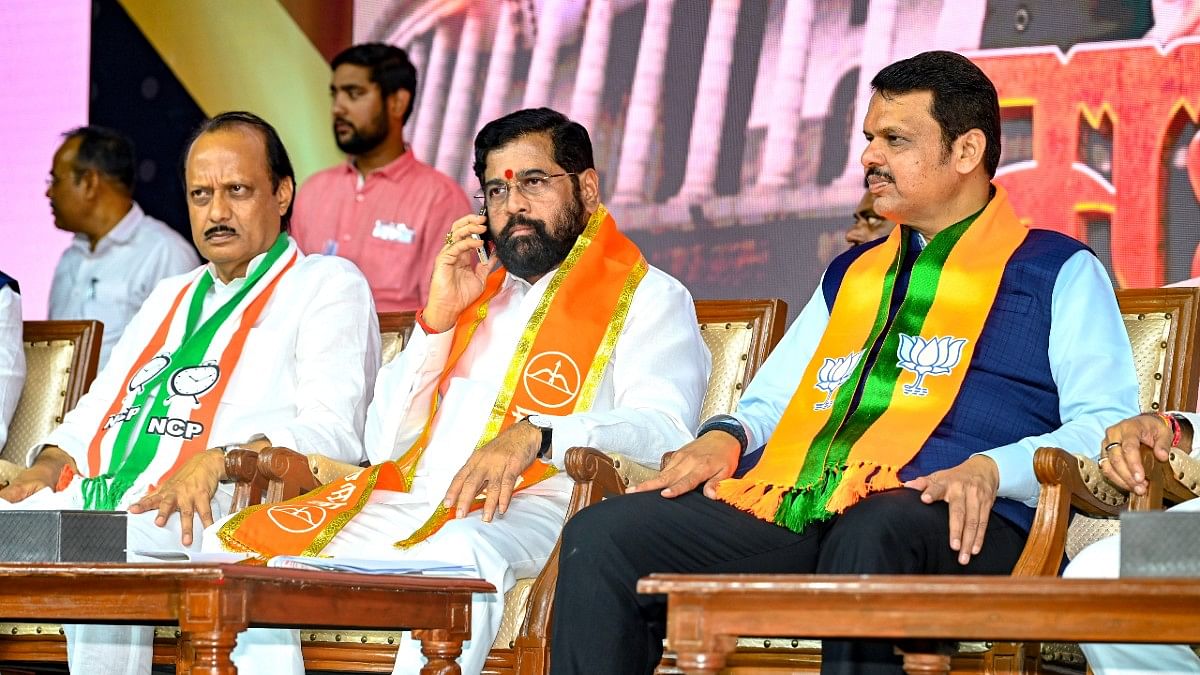 |
|
The recent Maharashtra assembly elections resulted in a landslide victory for the ruling Mahayuti alliance, led by the Bharatiya Janata Party (BJP). While the BJP secured a commanding 132 seats, the Eknath Shinde-led Shiv Sena won 57, and the Ajit Pawar-led Nationalist Congress Party (NCP) secured 41 seats. This victory has ignited a power struggle within the alliance, primarily focused on the position of Chief Minister. Immediately following the election results, the Shinde faction of the Shiv Sena, emboldened by their performance and drawing parallels to the 2020 Bihar election where Nitish Kumar became CM despite the BJP winning more seats, began openly demanding that Shinde retain the Chief Minister's post. This demand is fueled by the belief that the election campaign was effectively led by Shinde and that his leadership contributed significantly to the Mahayuti's success. This assertion is partially supported by post-poll surveys indicating significant public support for Shinde as CM.
However, the BJP, despite its dominant position within the alliance, has downplayed the Sena's demands, characterizing them as mere political maneuvering to strengthen their negotiating position and secure a more favorable share of power in the upcoming government formation. BJP leaders have repeatedly emphasized that the decision regarding the Chief Minister will be made jointly by the leadership of the three parties within the Mahayuti, with significant input from the party's central leadership in Delhi. They see Shinde's public pronouncements as a strategic move to maximize his party's influence in the negotiations, possibly aiming for key cabinet positions or even a Union ministerial role for Shinde himself. The BJP’s confidence stems from their significantly larger number of seats, giving them considerable leverage in the coalition negotiations.
The Shinde faction's argument rests on several pillars. They highlight Shinde's role in implementing popular welfare schemes, such as the ‘Ladki Bahin’ scheme, credited with swinging significant votes their way. They also emphasize his contributions to infrastructure development across Maharashtra, particularly in Mumbai. Furthermore, the Sena argues that failing to appoint Shinde as CM would risk alienating their party workers and creating a sense of betrayal, mirroring the situation in 2019 when the BJP's refusal to share the CM post led to the break-up of the alliance with Uddhav Thackeray's Shiv Sena. They also see Shinde's continuation as CM as a strategic move to neutralize the Uddhav Thackeray-led faction of the Shiv Sena, particularly in the context of upcoming Mumbai civic elections. Controlling the Mumbai civic body would give them significant political power and influence over crucial projects like the Dharavi redevelopment, currently undertaken by the Adani Group. The Uddhav faction, which had earlier pledged to cancel the tender, would pose a considerable challenge if they were to win the civic election.
The BJP, however, is not convinced by these arguments. They point to their overwhelming victory in Mumbai, significantly outperforming both the Uddhav Thackeray and Shinde factions of the Shiv Sena in the city. This suggests to them that the party has already effectively neutralized the opposition and rendered the Uddhav faction politically weak. Therefore, the BJP's stance appears firm, suggesting that while they acknowledge Shinde's demands as a natural outcome of the political landscape, they don't view them as a serious impediment to their preferred choice for the Chief Minister's position. The BJP's internal assessments suggest that caste dynamics will not be a decisive factor in this election, citing their strong performance despite Devendra Fadnavis being the face of the campaign. The BJP maintains that the final decision will be a collective one, but their statements consistently indicate a preference for a stable and strong government, hinting that Devendra Fadnavis remains their preferred candidate for the top post.
The coming days will be crucial in determining the outcome of this political maneuvering. Shinde's willingness to compromise, the extent of the BJP's willingness to negotiate, and the potential influence of the central leadership will all play a vital role in shaping the future of Maharashtra's political landscape. The stakes are high, not only for the individual ambitions of the key players, but also for the stability and governance of one of India's most important states. The situation presents a compelling case study in coalition politics, highlighting the complexities of power-sharing arrangements and the strategic gamesmanship involved in forming a government after a closely contested election. The outcome will have far-reaching consequences for the future trajectory of both the Shiv Sena and the BJP within Maharashtra, impacting their future alliances and electoral strategies.
